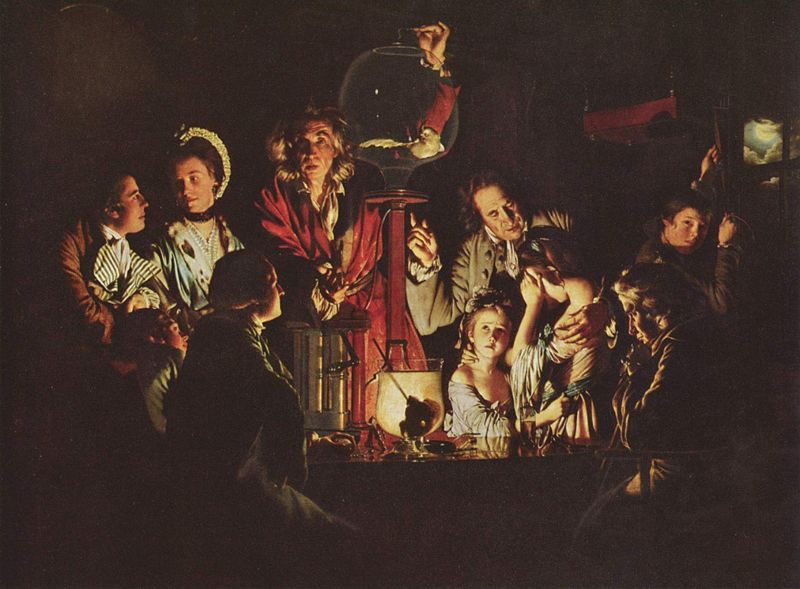Tomorrow I’m giving a public lecture in the Garrick Theatre, Lichfield, under the auspices of the Lichfield Science and Engineering Society. Non-members are welcome.
Lichfield is a small city in the English Midlands; it’s of ancient foundation, but in recent times has been eclipsed by the neighbouring industrial centres of Birmingham and the Black Country. Nonetheless, it should occupy at least an interesting footnote in the history of science and technology. It was the home of Erasmus Darwin, who deserves to be known for more than simply being the grandfather of Charles Darwin. Erasmus Darwin (1731 – 1802) was a doctor and polymath; his own original contributions to science were relatively slight, though his views on evolution prefigured in some ways those of his grandson. But he was at the centre of a remarkable circle of scientists, technologists and industrialists, the Lunar Society, who between them laid many of the foundations of modernity. Their members included the chemist, Joseph Priestly, discoverer of oxygen, Josiah Wedgwood, whose ceramics factory developed many technical innovations, and Matthew Boulton and James Watt, who between them take much of the credit for the widespread industrial use of efficient steam power. In attitude they were non-conformist in religion – Priestley was a devout Unitarian, who combined thoroughgoing materialism with a conviction that the millennium was not far away, but Erasmus Darwin verged close to atheism. Their politics was radical – dangerously so, at a time when the example of the American and French revolutions led to a climate of fear and repression in England.
The painting depicts another travelling science lecturer demonstrating the new technology of the air pump to a society audience in the English Midlands. The painter, Joseph Wright, from Derby, was a friend of Erasmus Darwin, and the full moon visible through the window is probably a reference to the Lunar Society, many of whose members Wright was well acquainted with. Aside from its technical brilliance the painting captures both the conviction of some in those enlightenment times that public experimental demonstrations would provide a basis of agreed truth at a time of political and religious turbulence, and, perhaps, a suggestion that this knowledge was after all not without moral ambiguity.

An experiment on a bird in an air pump, by Joseph Wright, 1768. The original is in the National Gallery.
Erasmus Darwin, as described in the biography by Desmond King-Hele (which I would certainly recommend reading for those interested in the history of science in a broad sense) appears to have been a truly remarkable person. His thinking on evolution – though largely expressed in poetry- must surely have been influential on his grandson. To quote:
‘Would it be too bold to imagine that, in the great length of time since the earth began to exist, perhaps millions of ages before the commencement of the history of mankind would it be too bold to imagine that all warm-blooded animals have arisen from one living filament, which the great First Cause endued with animality, with the power of acquiring new parts, attended with new propensities, directed by irritations, sensations, volitions and associations, and thus possessing the faculty of continuing to improve by its own inherent activity, and of delivering down these improvements by generation to its posterity, world without end!’
And expressing ideas close to selection of the fittest: “The final course of this contest among males seems to be, that the strongest and most active animal should propagate the species which should thus be improved”.
Although he may not have made many contributions to science per se, as an inventor, or in modern parlance a technologist, he seems to have had a remarkably fertile brain. He tended to keep this side of things quiet (as also his poetry) in case it detracted from how people perceived his role as physician. At the time he was regarded as an extremely successful physician, his fame spreading far beyond Lichfield, but he was also considered to be a leading poet who influenced many of the romantics (even if, to modern eyes, his poetry is hard-going). King-Hele’s biography makes fascinating reading.
I haven’t read King-Hele’s book – thanks for the recommendation. “The Lunar Men” by Jenny Uglow is the (greatly enjoyable) book from which I’ve learnt most about Erasmus Darwin and his circle.
If you are in the area Matthew Boulton’s House in Handsworth, Birmingham (Soho House) is worth a visit. Apart from the house itself, into which Boulton incorporated many of the latest technological features, including central heating and a kind of laminated flouring (I can’t remember what this was made of; it’s at least a decade since I last visited), there is also an exhibition about the Lunar Society and Boultons manufactory.
I can’t think of Handsworth without thinking of Handsworth Revolution, but that’s just my age, and the fact that when I lived in Birmingham I was shamefully ignorant about these things. Soho house sounds very interesting – these places are hugely important historical monuments, where the modern world began, really, and they should be better known.